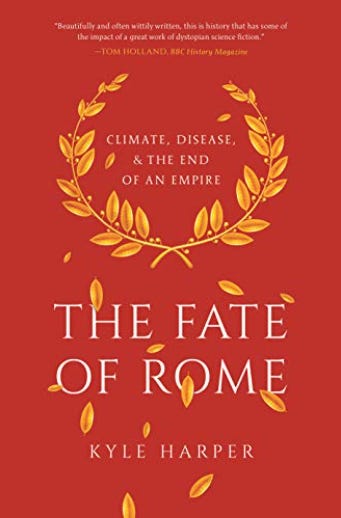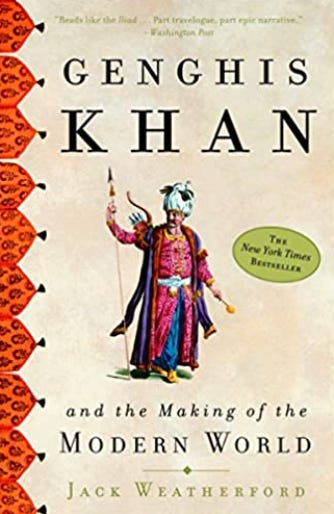Considering how connected Thousand-Year-Old Vampire is with different historical periods, I figured I might as well take this opportunity to talk about my love for history and the various texts I’ve found that are incredibly interesting and engaging. This will give another week for readers to catch up on the latest chapter…
…and give a vote to which previous enemy’s descendant Amrit will encounter in the next chapter. An ancient vampire Amrit no longer remembers? Or perhaps a Christian vampire-hunter whose descendant has been chasing him for years…
If you’re uninterested in this, feel free to skip! I’ll be back with Amrit the Vampire next week.

I love history! The stories of past civilizations, societies and peoples is fascinating to me. It started with an interest in ancient Rome, but has since expanded to many areas and time periods. Honestly, Ancient Rome is great but it’s too dominant in culture considering how many other cool civilizations and peoples have lived and thrived. I’ve jumped around to different areas and time periods, finding great stories all over.
History is not set in stone. It’s often changing as ideas shift and new information is found. This is why if you look at history books, you can often find multiple people arguing over whether the views presented are valid or not. The best you can do is research and make a decision for yourself. The books I like have many, many sources in the back, backing up their theories and assertions. These are also easy to read, in my opinion, presenting interesting information in an engaging way, using data and research to back up their claims.
Pre-history:
Guns, Germs and Steel deals with the question, “how come societies in Europe were the ones who were able to invade and conquer other lands instead of the other way around?” The author, Jared Diamond, does a great job of using science including climate, geography, and biology to explain why some societies were, essentially, luckier than others. This book has a divided reputation but I found it really interesting.
Ancient Rome
There’s many, many books on Rome and I haven’t read many of them. My wife has read more than I and she convinced me to read this one. This book looks at the end of Rome through the lens of climate and disease, using science to explain how these larger natural forces affected the civilization and ultimately led to its downfall. It’s really well-written and the science is very in-depth without becoming incomprehensible. It’s a really fascinating read.
Vikings
My wife and I really got into the Vikings tv show, so I then was interested in learning more about them. I’ve read both these texts and they’re both good for different reasons. The Age of The Vikings is very fact-based, well-researched and thorough, but each chapter is a different theme, so it doesn’t follow the vikings chronologically, which can be confusing. It’s not really focused on telling story of the vikings but presenting the facts that we know from what we’ve found. It does do a good job of addressing the hyper-violent reputation of the vikings, how they got that reputation and whether that reputation is valid or not. Children of Ash and Elm is told more like a story, from before the beginning of the vikings to the end. It also uses many sources and research but does go somewhat chronologically, making it possibly an easier read. It also came out more recently, 2020.
Middle Ages
I just recently finished this book on the Middle Ages and it rules! One of my favorite history books, for sure. It is easy to read, split into sections and chapters that make sense, and carries you from the end of Rome to Protestantism. It’s a great read that gives a really good overview of the middle ages. I can’t say enough about this book and am looking to getting his books on the Plantagenets as well.
Dan Jones has a chapter on the Mongols which caught my interest but I wanted more information, so I sought out this book. I recently started this and am really enjoying it. The story of Genghis Khan and the Mongols is incredible and really engaging to read about.
Indigenous
This is an eye-opening history of Native Americans in North America and the atrocities committed against them. Should be required reading in USA’s history education.
This is a great text that uses research and science to show that there were very complex societies before Columbus arrived. It’s very easy to read and really exposes the lie that the societies and people in the Americas were ‘primitive' compared to other societies. A great read.
Other
This book does a great job of presenting time periods and what was happening in each continent/area during that time. One thing when you are learning about history is it’s difficult to place what was happening when and where. This is easy to read, in a visual format, that can show you, “Oh, this was happening in Asia while this other stuff was going on in Europe.” It’s very brief overviews of course, but helps to place time periods, civilizations and societies in relation to each other.
Got any recommendations? Podcasts? Books? etc? I know the “History of Rome” podcast is fantastic, I listened to most of it but never finished and the creator behind it also has a podcast on “Revolutions” which sounds awesome but I guess I find it easier to read about history than listen to a podcast of it. Let me know your recommendations, whether you agree or disagree with the books I talked about, what types of history you’re into, etc. Do any of these books spark interest?
See you next week!











